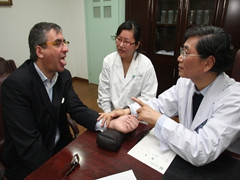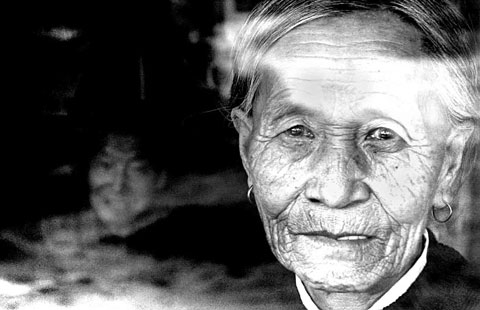Opening to innovation
By Li Keqiang (China Daily) Updated: 2014-05-29 08:02Editor's Note: The following is an address by Li Keqiang, premier of the State Council of the People's Republic of China, at the 2014 annual meeting of the Global Research Council held in Beijing on May 27.
Friends from the international science community, Ladies and Gentlemen, I am delighted to attend the 2014 annual meeting of the Global Research Council in Beijing. Established in 2012, the council is a young international science organization but has strong vitality and unlimited future. The council held its first annual meeting in a developed country and is holding this year's meeting in a developing one. This shows its global vision and dedication to openness and cooperation. The theme of this meeting, "Open Access and Shaping the Future", meets practical needs and reflects future trends. Without open communication worldwide, science can hardly achieve any major breakthrough. Without a younger generation that outperforms its predecessors, science can hardly have a promising future. On behalf of the Chinese government, I wish to extend warm congratulations on the opening of the 2014 annual meeting and a sincere welcome to the guests coming from all over the world.
Scientists have nationalities, but science knows no national borders. The history of science is written by all mankind, and its future also needs to be shaped jointly by the international community. Scientific progress comes from freeing up the mind, and openness in science can boost creativity. Science is connected with the right to development, and knowledge is a public instrument. A more open platform will enable everyone to share in science knowledge, which will contribute to the realization of inclusive development that benefits all. In such an age of economic globalization and worldwide informatization, openness in science is not about giving in one direction, but about two-way exchanges and common development. Countries should adopt multiple means to promote the broader dissemination and sharing of science knowledge, so as to maximize the value of science and enhance the well-being of mankind. China pursues a win-win strategy of opening-up. We are advancing a new round of opening-up, expanding international cooperation in science and technology and encouraging the global flow of knowledge, technology and human resources. We support establishing a mechanism for open access to science knowledge funded by public finance to bolster the common development of scientific research in China and the world.
Openness in science naturally involves protecting intellectual property. These two things go in parallel and reinforce each other. To protect intellectual property is to protect innovation. Only when intellectual properties, such as copyrights and patents, are effectively protected, can science and technology grow with stronger vigor and innovation yield more results.
China's development is an open one. We need innovative individuals and creative enterprises in their tens of millions. And we need to learn from the advanced foreign knowledge and technologies and bring them into China. We should foster a sound environment of rule of law, provide equal protection to domestic and foreign intellectual property rights amid opening to the outside world and ensure that all innovators are duly honored and rewarded, thus galvanizing greater incentives for innovation.
A new generation of talents brings about a new horizon for development. The youth are best known for their dreams and passions. Dreams are bridges to the future, whereas passions generate potent power. Many important scientific discoveries and technological innovations are works of the young. The 100-odd year history of the Nobel Prize has seen so many silver-haired receiving the award. But their achievements were made when they were still quite young. Bearing this in mind, we have formulated a mid-and-long-term plan for talent development and set in motion a series of national programs for the cultivation, introduction and encouragement of young scientific and technological talents. We hope that this will help young people who love science and are keen to innovate to display their talents and fully realize their potential.
As a Chinese saying goes, "It takes ten years to grow a tree yet a hundred years to bring up a person." In order to grow creative, young talents need to stand on the shoulders of the forerunners. They must be able to base their innovation on inheritance and to leapfrog in creation. We must attract more young people to do scientific research and give preferential support to those with promising potential. Timely support should be made available, in particular, when they are at the initial stage of professional development and when they are at the crucial stage of completing a higher scientific task. In this regard, senior scientists and experts need to show an open mind and a readiness to shoulder the responsibilities for mankind's future.











